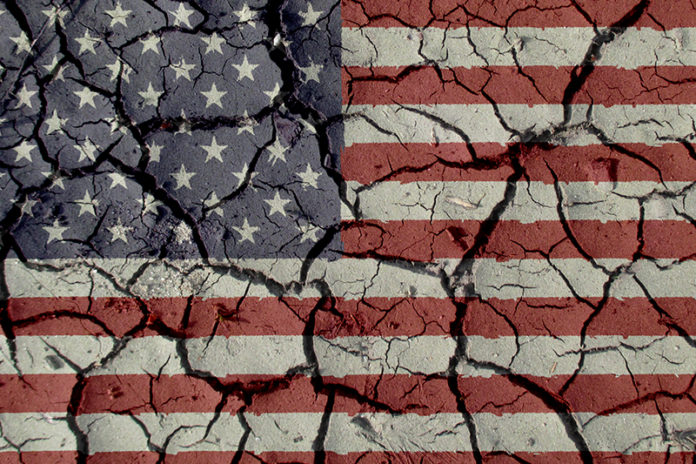Republicans are busy bashing President Joe Biden for his tragically botched withdrawal from Afghanistan. They should. He deserves it. The larger truth, though, is leaders of both parties have botched Afghanistan now for 20 years. When people research why the American people so dramatically lost trust in national institutions and leaders, Afghanistan will be a case study.
America’s involvement in Afghanistan started, of course, after the 9/11 attacks.
Afghanistan’s Taliban government had given safe haven to al-Qaida. After 9/11, President George W. Bush, with express authorization from Congress, initiated Operation Enduring Freedom to drive the Taliban from power and destroy al-Qaida and their leader, Osama bin Laden. This was a mission every sane American agreed with. It was an emotional time. The images of the first U.S. Special Operations troops on the ground in Afghanistan mounting a cavalry charge on horseback made us all swell with pride. With the huge exception of allowing bin Laden to sneak away through the mountains to Pakistan, the bulk of the Afghanistan mission was accomplished within two months. We obliterated Taliban forces, drove al-Qaida into hiding, disrupted their operations and killed thousands of terrorists. American soldiers did their jobs.
Instead of declaring victory, Bush, and President Barack Obama after him, expanded the Afghanistan mission to nation-building. Specifically, the plan for both was to establish a Western-style democracy in Afghanistan. Their quotes from the time establish this in no uncertain terms. It was a preposterous proposition from the start. Afghanistan is famously known as “the graveyard of empires.” Many before had tried and failed to capture and govern this rough, backward and largely corrupt society, the Soviet Union being just the most recent example. The hubris and naivete in thinking America could fundamentally change a country as complicated as Afghanistan on a dime is stunning. It would be hard to fail harder.
Along the way, as the failures built up in Afghanistan, so did the lies. Upon the U.S. withdrawal, the ultimate truth of how little progress was made over 20 years was laid bare for the world to see. Leaders of both parties had told us that we were having success training the Afghan army. The corporate media, as is their business model, largely parroted the official line.
Anyone who spoke with actual American soldiers involved in the operations would have heard a different story. Our troops doing the work were put in an impossible situation by failed leaders and an ill-defined mission. The Afghan troops were not doing well. Nearly half may not have even existed. There were fake names added to rosters so commanders could pocket extra pay from the U.S. taxpayers. Drug abuse was rampant. Either America’s leaders were so stunningly clueless that they missed these glaringly obvious facts or they were lying through their teeth. Biden confidently, almost arrogantly, predicted that Afghanistan in the hands of what he told us was a competent 300,000-person army and air force would hold out against the smaller and less-armed Taliban insurgents. In reality, this Afghan force, after 20 years and trillions of dollars in U.S. training, couldn’t even last a few days without direct U.S. support. Were we given a sense of any of this from U.S. leaders or the corporate media beforehand?
The bipartisan Afghanistan failure can either be a wake-up call to America or just one of the last failures along the way for a country in decline. That choice is ours, and we will know the answer soon. The first sign will be whether those responsible are willing to give real answers as to how this happened. How did Biden get this so wrong? His political career is already going to be hurt terribly by this debacle. Maybe he could try a new tactic: confess to the failure and answer all the questions. That would be a refreshing change from our top leaders’ behavior for many years now.
The corporate media will let Biden get away with the usual American leadership response of moving on without answering the many obvious questions raised by our stunning failure.
Biden could help heal a broken country and restore a tiny bit of confidence if he came clean. For starters, it would be important to learn how so many Americans were left behind in Afghanistan. Were top American leaders so deluded about Afghan troop capabilities that they were willing to bet the lives of thousands of Americans still in the country on the outcome? Did anyone even consider these Americans? And why would America not prioritize the evacuation of Americans from Afghanistan before foreign citizens? Are American leaders not obligated to help American citizens before those from other places?
Finally, how did we leave so many valuable and sensitive weapons in Afghanistan? Was anyone even considering that? Will the public be told precisely which weapons were left to Taliban control? Finally, Bush could restore a lot of confidence nationally if he revisited his past statements on democracy-building in Afghanistan and reconciled those with the 20-year ordeal that transpired in their wake.
Our leading institutions have, for years now, grown used to failing and not having to answer for it. The corporate media does not demand answers from those in leadership. America’s recent slide has been marked by a stunning lack of consequences for those who fail us. From those whose risky investments caused the financial crisis, to those who helped leading pharmaceutical companies promote opioids as they ravaged the American heartland, to those at the very top levels of Hollywood, Washington, academia and Wall Street who turned a blind eye or even provided support as luminaries such as Jeffrey Epstein and Harvey Weinstein raped young women — nobody has been held responsible.
Will this time be any different? If not, America will keep declining.
Neil Patel co-founded The Daily Caller, one of America’s fastest-growing online news outlets, which regularly breaks news and distributes it to over 15 million monthly readers.

































